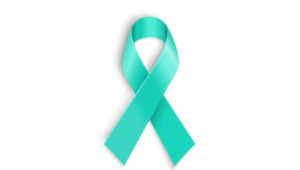During February’s Ovarian Cancer Awareness Month, we are urging women to remain ever vigilant, as ovarian cancer symptoms are vague and women often think they are caused by other conditions and may ignore them.

Our Cancer Education and Screening Manager, Melissa Treby, advises that as there is no effective screening test for ovarian cancer it is very important that women pay attention to any symptoms that are unusual, new, persistent, or troublesome.
“If you have any of the symptoms and they happen on most days for three weeks or more, particularly if you’re over 50 or if you have a strong family history of breast or ovarian cancer, go to your doctor and get a check-up,” Ms Treby said.
“It is likely there isn’t anything to worry about, but if it is cancer, finding it early improves the chances of successful treatment.”
Because it’s difficult to detect in its early stages, there are more deaths from ovarian cancer in Australia than any other gynaecological cancer. Improving early detection of this disease by being aware of the symptoms is a good way to help improve ovarian cancer outcomes.
Ovarian cancer statistics
According to the the WA Dept. of Health Cancer Registry 2017;
- The chances of a woman developing ovarian cancer by the time she is 75 is 1 in 161
- Ovarian cancer is more common in women over 50
- In 2017, 115 West Australian women were diagnosed with ovarian cancer
- In 2017, 94 West Australian women died from ovarian cancer
Ovarian cancer symptoms include:
Ovarian cancer can be difficult to diagnose in its early stages as symptoms can be non-specific or similar to those of other diseases.
- a swollen, bloated abdomen
- pressure, discomfort or pain in the abdomen
- heartburn, nausea and bloating
- changes in toilet habits (e.g. constipation, diarrhoea, frequent urination due to pressure, increased flatulence)
- tiredness and loss of appetite
- unexplained weight loss or weight gain
- changes in your menstrual pattern or postmenopausal bleeding
- pain during sex
Steps to reduce risk of cancer:
More research is required to better understand the causes of ovarian cancer, but there are steps you can take to reduce your overall risk of cancer.
- quitting smoking
- being SunSmart
- maintaining a healthy body weight, being active
- eating plenty of fruit and vegetables
- if you drink alcohol, reducing how much you drink to reduce your cancer risk
- participating in cancer screening programs, if eligible
For more information
- Find out more about ovarian cancer.
- Call our 13 11 20 cancer information and support line.